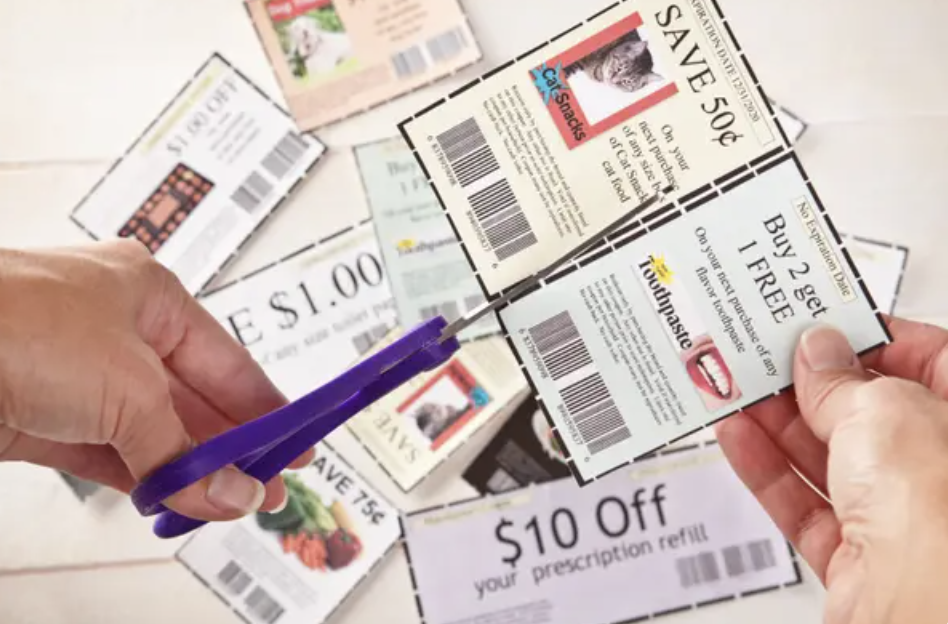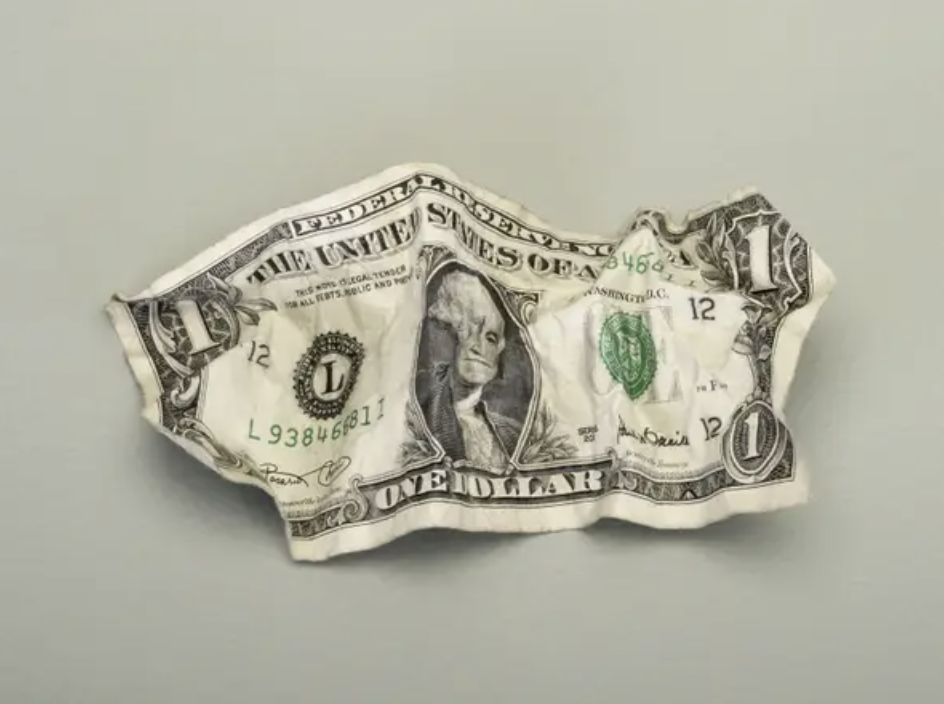People Are Calling Out Old Money-Saving Tips That Just Don’t Work Anymore In Today’s Economy
In today’s rapidly evolving economy, financial strategies that once served as tried-and-true money-saving tips are increasingly falling out of favor. As technology advances, consumer preferences shift, and the cost of living continues to rise, individuals and experts alike are starting to question the effectiveness of traditional money-saving advice.
The old adages that once guided our financial decisions are now being called into question, as people recognize the need for updated approaches in navigating the complexities of modern-day finances.
In a recent viral reddit post people started sharing some of these old money-saving tips that boomers love to throw around, but just don’t work anymore in today’s economy. Read on for the details.
1. “‘Don’t use credit cards; use cash for everything.’ Easy way to not have a great credit score when you need a loan. Use the card and pay it off monthly.” — u/katm12981

“A friend of mine bought a house last year and told me his wife always paid for everything in cash up to that point. She thought she was being responsible by saving for cars and other big purchases. My friend with a huge student loan balance had a better credit score.” — u/ltcommandercarter
2. “DIY. Not everyone has thousands of dollars’ worth of equipment around and the skills to build something cheap.” — u/fischerandchips
“I could have bought a $250 cutting board as a gift. Instead I ended up spending $700 to make one 😬.” —u/makeithomemade
3. “‘Clip grocery store name-brand coupons to save money.’ Except most of the things that have manufacturer coupons are high-markup processed foods. Often another brand is a better buy than the coupon item. Sometimes a different size of the same product by the same manufacturer that didn’t qualify for the discount is a better buy. Buying generic and cooking from scratch are usually cheaper.” —u/doublestitch

“Also, not only have coupons not kept up with inflation, but they’ve gotten even smaller. Fucking 25 cents off anything isn’t enough to make it worth it.” —u/bramblescrash
4. “Using homemade cleaning products. Sometimes baking soda and vinegar doesn’t cut it. Save your body soreness, frustration, and wasted time. Buy yourself some soft scrub!” —u/helpfuljarofdirt
“Yeah…I’m definitely a ‘Have you tried spraying it with vinegar?’ guy, but sometimes the answer is ‘No, that would be dumb,’ and that’s fine.” —u/annual-intern5669
5. “Driving for miles to save 2 to 5 cents on gas. I still see this done today, and I don’t think it helps at all. But to each their own.” —u/lumberlady72415

“To save $5 on a tank, you would need to save 10 cents per gallon and fill up 50 gallons. I dunno, I don’t see more than a 20-cent difference in price per gallon, and I fill up 10 gallons, so I save at most $2.
“So then the question is, How much time am I willing to give up to save $2?” —u/jjjschmidt_etal
6. “Going cheap on everything. You are not doing yourselves any favors by buying cheap appliances. Cheap appliances break easily and need to be replaced. When you buy something, make sure it lasts and you’re not throwing money away to replace it every couple of months.” —u/watermelon-bubblies
7. “‘Wash your dishes by hand.’ Yeah, my dishwasher uses less power to heat the water and run a load than the hot water cylinder uses just to heat the water. It uses less water than a sinkful and can do more dishes in that amount of water than I can. So saves me money there, too, as I have to pay for water.”
“Actually handy frugal tip incoming: Scrape food off your dishes and then just load into the dishwasher. Do not rinse your dishes. Add dishwasher powder to the prerinse section as well as the normal wash section. Select a cycle with a prerinse start. Dishes come out perfectly clean. Use powder, not tablets. Powder is generally about the same price as tablets but will get you twice the number of loads.” —u/caconz
8. “The general idea that you should keep everything for as long as possible and only replace something when it breaks. For older electric items, especially things like heaters and refrigerators, the energy consumption of an older appliance can be four to five times higher or more than a new model. Depending on how much your energy costs, the cost of that extra energy can be the equivalent of buying a new appliance every few years.” —u/happihappihappi
9. “‘It’s cheaper to buy in bulk.’ Then half of the item goes to waste because of spoilage or freshness.”—u/thomassneed269

“Exactly. That advice is good for nonperishables like rice, canned goods, or dry beans. The only reasons to buy anything perishable in bulk are that you enjoy canning/making jam, you’re having a huge party, or you have a very large household.” —u/danielledelacadie
“Or you have the space to freeze it. I know lots of people who buy veggies to chop and freeze. They have the freezer space to do so.” —u/ravennymph90
10. “In this used-car market, you might be better off buying a new car than trying to find a used one. (This only really applies to affordable sedans, though.) You get the warranty at, in some cases, the same price.” —u/acupofmeck
“Yeah, scarcity has spoiled the used-car market. Cheap cars are so outstripped by demand that a basic clean-running beater can’t be found at a price that offsets the looming repair costs.” —u/stu54
11. “Dollar stores. Usually not cheaper per unit — they’re just packaged in smaller quantities to price cheaper.” —u/privatequestions_762

12. “I’m in a high–cost of living area, and the ‘thrift stores’ sell worn T-shirts for $13.99. They haven’t been thrifty for more than eight years in my area.” —u/electrical-pie-8192
13. “The ‘latte factor’!” —u/okay_primary_1075
“OMG, yes. It’s like, ‘Okay, I need to make my money go further somehow,’ and people are like, ‘Stop buying coffee!’ It’s like, you really think that wasn’t the first thing to go? Really? It’s like when thin people tell me I could lose so much weight if I stopped drinking soda, and are stunned or flat-out don’t believe me when I say I don’t drink soda.” —u/ltcommandercarter
14. “Hyper-focusing on smaller issues while not caring about larger things. I know people who (despite being comfortably middle class) will collect coupons for everything, or buy clothes on sales only, or buy gasoline only from Costco. However, if I ask them about their bigger finances, they just draw a blank. No investments, no passive income, most of their money in the bank or in the house in physical form (which is basically depreciating due to inflation). Many don’t even know their approximate ballpark net worth or what interest rate their bank is giving, and they also don’t know how to do taxes to get good returns.”
“But god forbid you buy a $4 milk carton. They will talk about how you could have saved $1 if you waited till Friday, when they lower the price to $3.” —u/emprupus
15. “‘Eliminate monthly subscriptions/daily coffee/small expenses.’ I’m so tired of seeing this advice. Cutting $100 per month on streaming and small expenses is gonna involve a) negotiating with my wife and the kids, and b) some amount of disappointment ($100 a month would be, like, all of our music and video streaming, so that’s a lot of disappointment). In other words, a lot of time and effort for basically nobody getting what they want.”

“It is easier and quicker to find $100 in savings by refinancing a mortgage, student loans, or car loans, or working on other large expenses like car insurance or homeowner’s insurance — not just because those are larger spending categories, but because the wife and kids don’t care who services our debt or insures our cars.” —u/brainwormed
16. “My mother will drive around to two or three different grocery stores to take advantage of various deals, but I’m certain that the time and gas burned driving around cancels out any savings on groceries. (This may be less true recently, with grocery prices skyrocketing.)” —u/paulrik
17. “‘Higher quality costs more.’ The cost tells you nothing about the quality; it’s better to look at the materials and how something was made.” —u/im-a-sim


